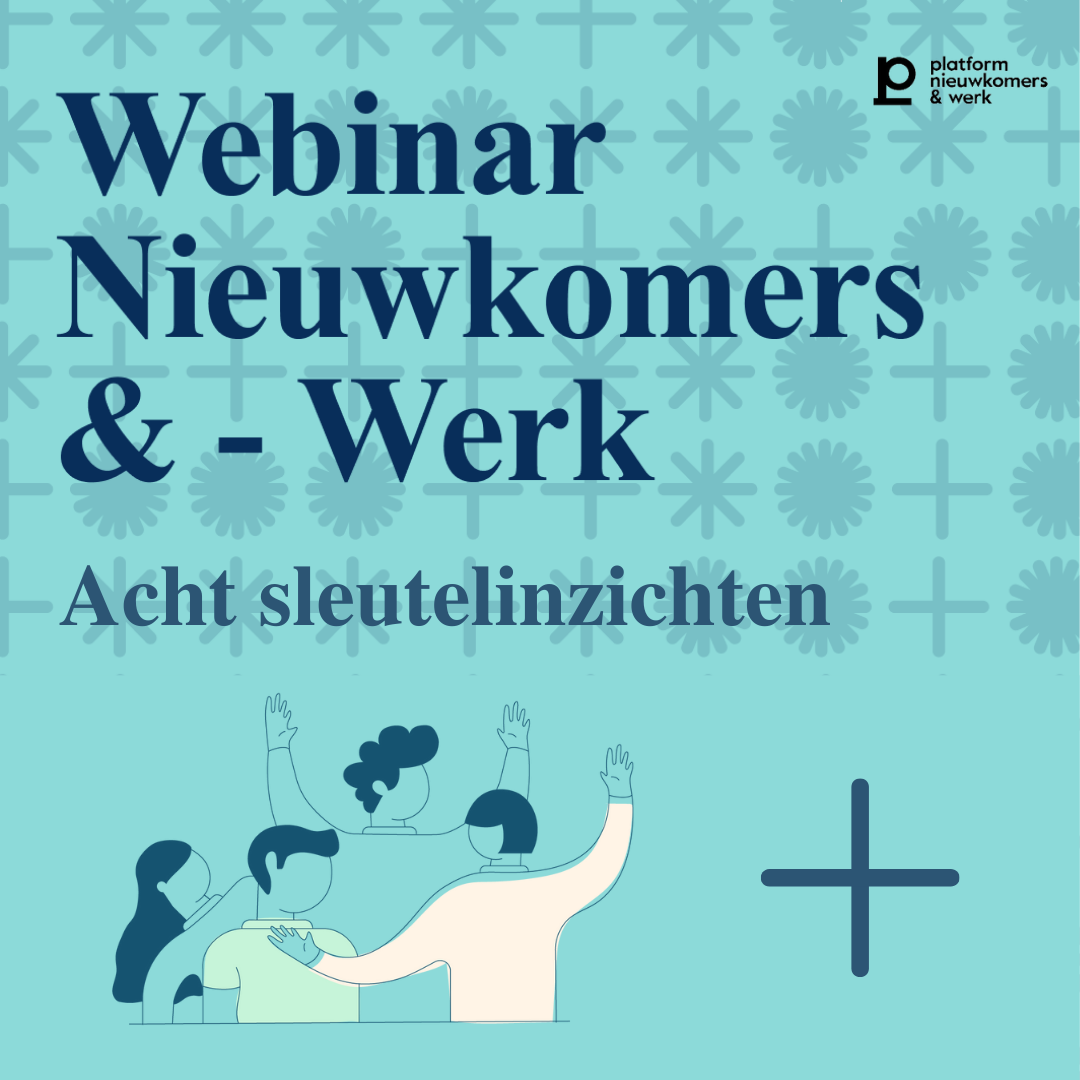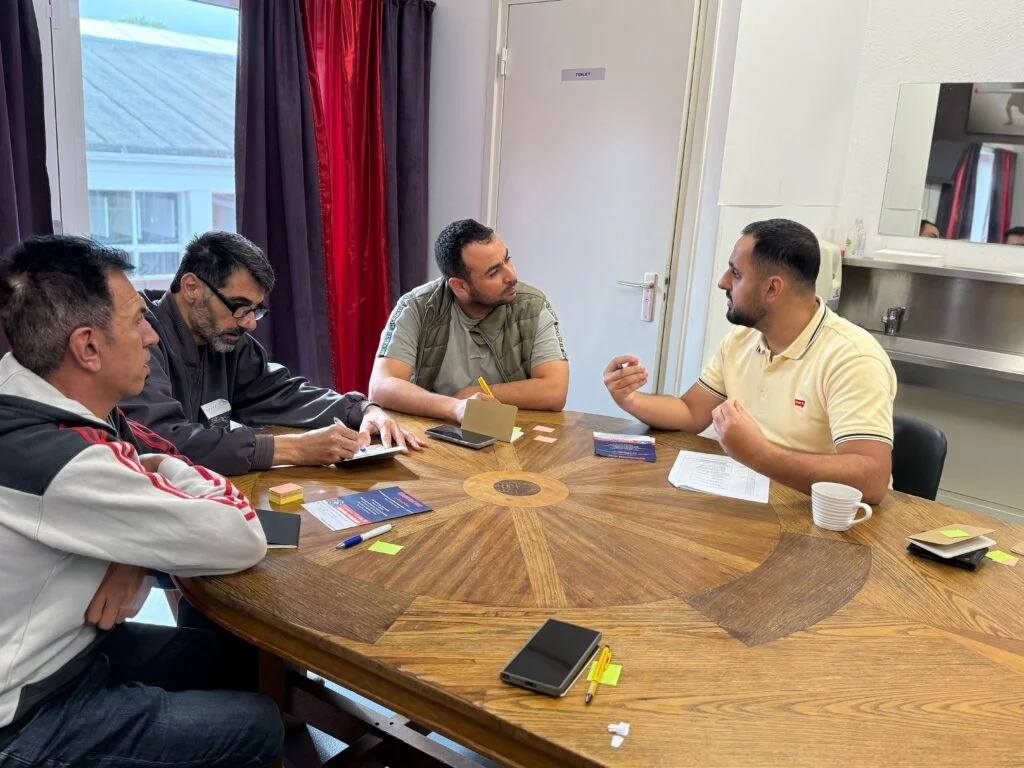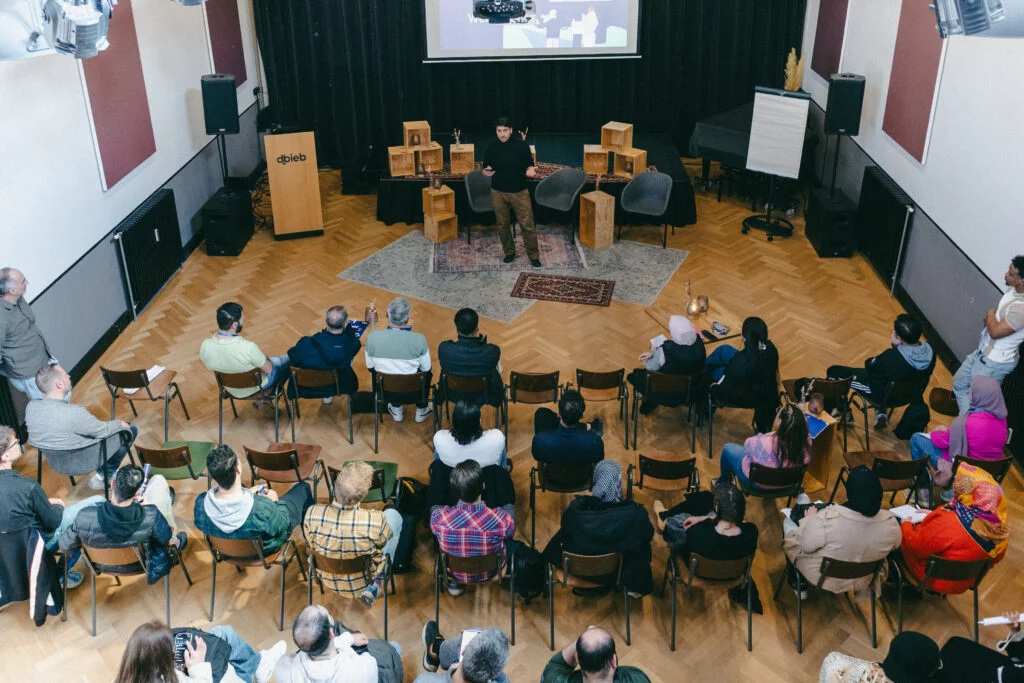The importance of connecting with informal networks and communities of newcomers seems obvious, but how do you put this into practice?
During the webinar we organized on July 1, 2021, participants engaged in discussions with experts in the field of informal networks and access to communities. Eight key insights emerged from these discussions and presentations:
1. Connecting with informal networks and communities of newcomers is key to successfully recruiting new candidates from diverse backgrounds.
For example, collaborate with newcomers who have access to various informal networks (also known as key individuals) to reach the target group. It is important that these key individuals have the freedom to approach the target group in their own way. They speak the language of the target group and know what the target group needs. It also helps if they serve as role models within the target group.
2. By being close to the target group, you can gain their trust and thus achieve more sustainable results in guiding them toward employment.
By becoming aware of the situation in which the target group finds itself and showing that you are always there for them, you lay a good foundation for trust. Don't just look at people as 'participants', but above all as individuals. For example, you can organize activities in which people come together and get to know each other better.
3. Being connected to informal networks and communities of newcomers provides new perspectives for policymakers and agencies.
As an organization, you may be blind to the obstacles your target group faces. For example, it may be difficult to reach your target group, or sometimes it may be difficult for your target group to find you. By working with key individuals who have access to informal networks, your organization can learn from the experiences of your target group. It is important to really listen to the needs and feedback of the target group, so that you can then adapt your organization's working methods accordingly.
4. Building trust and assuming equality are important idealistic conditions for connecting with informal networks and communities of newcomers.
A relationship you enter into with an informal network must be based on mutual trust and equality. You can achieve this, for example, by involving the informal network in a project from the outset and ensuring equal (paid) recognition of their work.
5. Having sufficient resources, such as time, money, and space, are important materialistic conditions for connecting with informal networks and communities of newcomers.
Building trust takes time. Trust can only grow when you bring people together and they engage in conversation with each other. Money and a physical/online space can facilitate these encounters. For example, organizing an informal dinner or bringing people together online via a meet and greet. You can also use money to appropriately recognize people who are committed to your organization through an informal network for their work.
6. To make cooperation with informal networks and communities of newcomers sustainable, you must ensure representation, ownership, and equal remuneration.
Ensure that people from diverse backgrounds are present at all levels of the organization. This will make people feel represented. You can also give people the space to tell their own stories and take ownership of their own development. This will give people the feeling that they themselves have an influence on the end product and will make them feel more involved. In addition, it is important that people receive equal compensation for the work they do. When the work performed benefits you as an organization, there must also be compensation for this. For example, you can open up your own network to them and/or offer financial compensation.
7. To maintain connections with informal networks and communities of newcomers, you must stay in touch with members.
Even after the work has been completed, organize occasional meet-ups or check in via social media. These meet-ups provide an opportunity to talk to each other and catch up on how things are going and where everyone is now. They can also offer members of the informal network a chance to talk to each other. See how you can help each other move forward. You can also share knowledge with each other by organizing workshops, for example.
8. In order to make the connection with informal networks and communities of newcomers sustainable, there must be room for people from the informal network to continue to develop.
Give members of informal networks the opportunity to learn new skills by organizing or offering workshops. In addition, facilitate meetings where people can explore Dutch society. It is also important to offer people prospects. Ensure that members of informal networks are not expected to continue doing their work on a voluntary basis by recognizing their work in an equal manner, in the form of a paid job. Offering internal training or an accredited education or course can be a way to offer prospects and development within the established collaboration.
The webinar "The importance of connecting with informal networks and communities of newcomers" is available online .
This webinar is organized by OpenEmbassy the Newcomers & Work Platform, which we established with the support of the Goldschmeding Foundation . The Platform aims to help more newcomers find work more quickly, more sustainably, and with an eye for their talents and ambitions. We do this by supporting initiatives that guide newcomers to work with funding, research into effective components, knowledge sharing, coaching, and community building. And we do this by translating everything we learn from the initiatives into shareable knowledge.
The webinar is part of our series of 'system impact meetings'. These meetings aim to focus on structural change in the labor market for newcomers. We believe that access to and strong connections with informal networks and communities of newcomers contribute to diversity, a more sustainable transition to work, more inclusive programs, and better policy.




